Welcome, spice lovers! Whether you're a culinary wizard or just someone who enjoys spicing up your scrambled eggs, this guide is here to turn your kitchen into a flavor playground. We're diving deep into the world of seasonings for all kinds of dishes — from bold meats to delicate pastries.
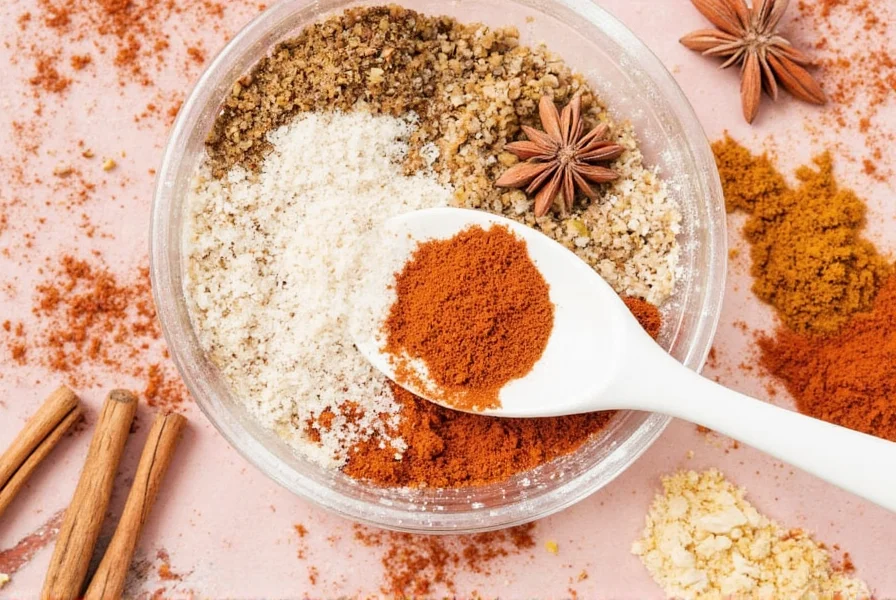
Table of Contents
- Why Seasonings Matter
- Top 7 Underrated Seasonings
- What to Use Each One For
- Buying Guide: How to Choose the Right Seasoning
- Pro Tips: Getting the Most Out of Your Spices
- Frequently Asked Questions
- Conclusion
Why Seasonings Matter
You may think that salt and pepper are enough to get by in the kitchen, but let's be honest — when was the last time those two really wowed anyone?
Seasonings are more than just shelf decorations; they’re flavor enhancers, aroma boosters, and sometimes even health heroes. From adding depth to soups to turning grilled chicken into a gourmet experience, the right seasoning can elevate even the simplest dish.
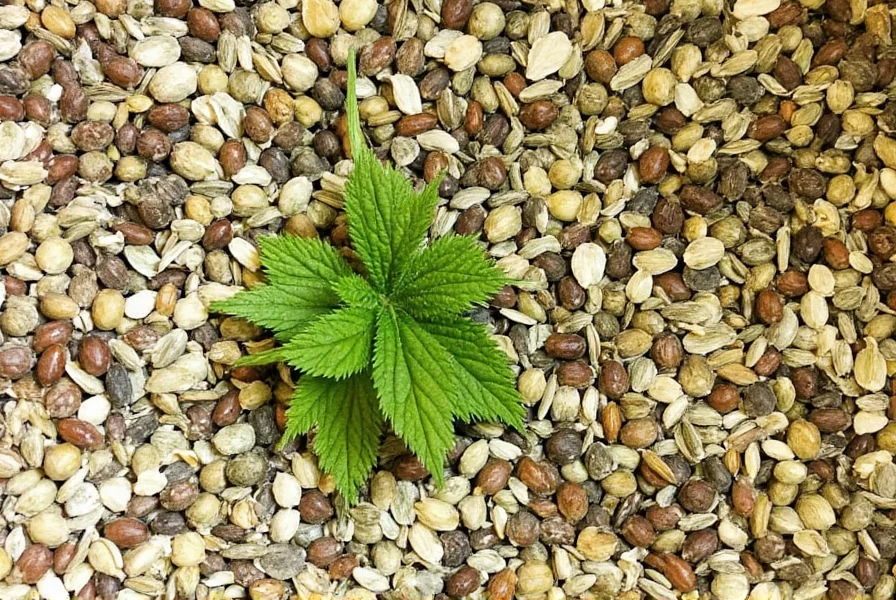
Top 7 Underrated Seasonings You Should Be Using
Let’s break down seven powerful, often overlooked seasonings that deserve prime real estate in your spice rack:
| Seasoning | Main Flavor Notes | Best For |
|---|---|---|
| Za'atar | Tangy, earthy, nutty | Pita bread, roasted vegetables, salads |
| Sumac | Citrusy, bright | Grilled meats, dressings, rice dishes |
| Urfa Biber | Smoky, raisin-like heat | Steak, lamb, stews |
| Szechuan Peppercorns | Numbing, citrusy tingling | Asian stir-fries, marinades |
| Mace | Warm, sweet, similar to nutmeg | Baked goods, creamy sauces |
| Shichimi Togarashi | Spicy, citrusy, toasted | Ramen, noodles, popcorn |
| Himalayan Black Salt | Eggy, sulfurous (in a good way!) | Vegan scrambles, tofu dishes |
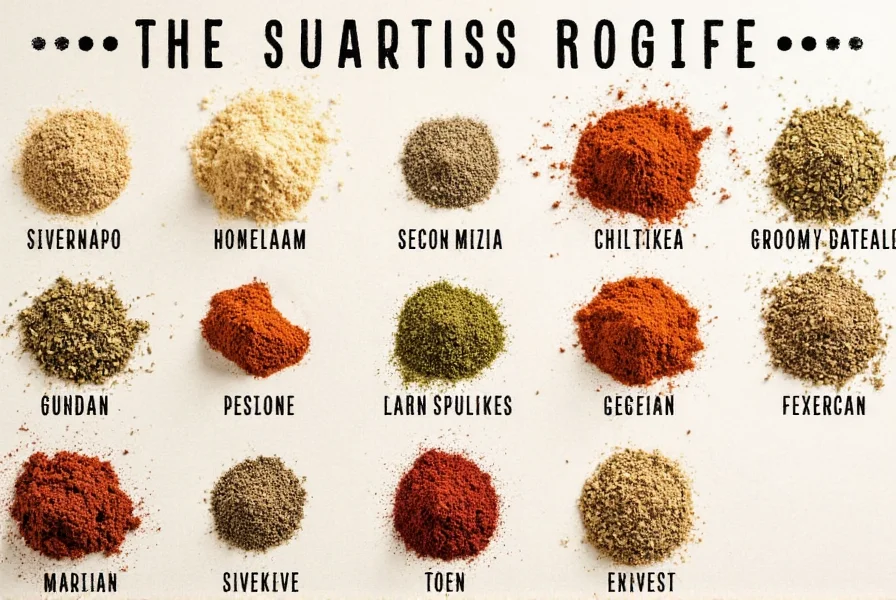
What to Use Each One For
Za’atar
If you’ve never tried za’atar, you’re missing out on one of the most aromatic and versatile seasonings around. A blend of thyme, sumac, sesame seeds, and salt, it brings a tangy, herbal note to everything it touches.
- Dip pita into olive oil mixed with za’atar
- Sprinkle over hummus or labneh
- Use as a crust for roasted cauliflower
Sumac
This ruby-red powder gives dishes a zesty punch without any heat. It’s perfect for balancing rich flavors or adding brightness to dull-looking leftovers.
- Shake over grilled kebabs
- Add to Greek salad dressing
- Mix into lentil soups
Urfa Biber
Known as “the black diamond of chili peppers,” Urfa Biber is dried over smoky fires, giving it a unique flavor profile. Not too hot, but deeply flavorful.
- Use as a dry rub for grilled lamb chops
- Add a pinch to tomato-based stews
- Enhance mole sauce complexity
Szechuan Peppercorns
The famous tingly sensation these peppercorns provide is unlike anything else in the spice world. They’re not spicy-hot like chili peppers, but rather create a numbing effect on your tongue.
- Toasted and crushed for ma po tofu
- Mixed into chili oils
- Infused into cocktails for a surprise twist
Mace
Often overshadowed by its sibling nutmeg, mace brings a warm, slightly floral taste that’s perfect for baked goods and custards.
- Used in pumpkin pie and spiced cakes
- Great in béchamel or cheese sauces
- Adds warmth to apple strudel
Shichimi Togarashi
A Japanese seven-spice blend that includes chili, orange peel, and seaweed, offering both heat and umami. Don’t confuse it with regular red pepper flakes!
- Sprinkle over ramen bowls
- Season roasted sweet potatoes
- Give popcorn an Asian twist
Himalayan Black Salt
If you’re vegan or love plant-based cooking, this is your secret weapon. Its eggy flavor makes it perfect for tofu scrambles and faux egg dishes.
- Add to vegan omelets made from chickpea flour
- Mix into mashed avocado toast
- Enhance Indian street food like chaat
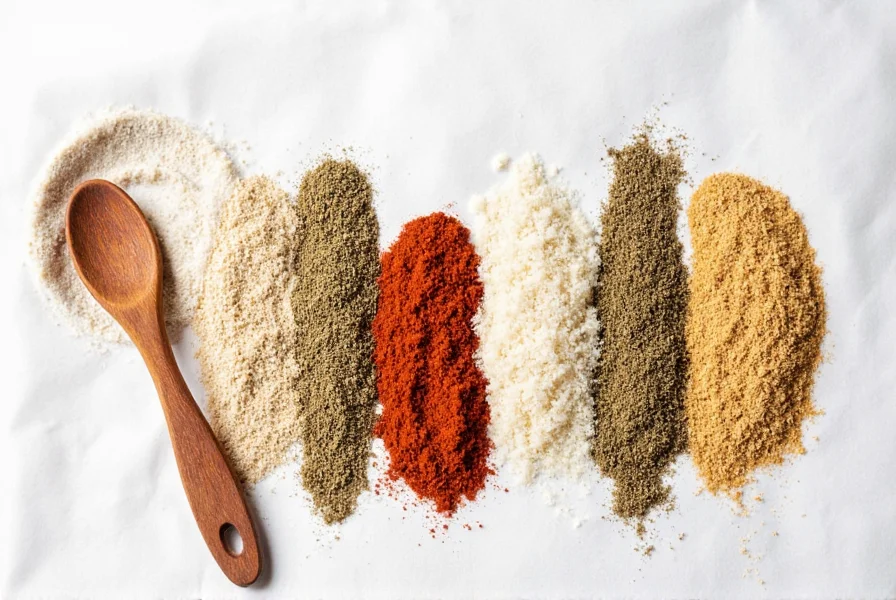
Buying Guide: How to Choose the Right Seasoning
Not all seasonings are created equal. Here’s how to make sure you're buying quality ingredients that deliver real flavor.
Look for Whole vs. Ground
Whole spices like cumin seeds, peppercorns, and star anise tend to retain their potency longer than pre-ground versions. Invest in a small grinder so you can freshly grind them when needed.
Check for Origin
Some spices are region-specific and will vary in flavor depending on where they were grown. For example:
- Madagascar vanilla vs. Mexican vanilla
- Indonesian cinnamon vs. Ceylon cinnamon
- Indian garam masala vs. Middle Eastern baharat
Brand Matters
We recommend trying brands like:
- Penzeys Spices: Known for high-quality, ethically sourced ingredients.
- The Spice Garden: Great for organic and non-GMO options.
- Spice Islands: Budget-friendly but still delivers solid flavor.
Storage Tips
Store your seasonings away from heat and light. Glass jars are ideal, and labeling them with purchase dates helps you keep track of freshness. Whole spices last up to 4 years, while ground ones should be replaced every 1–2 years.
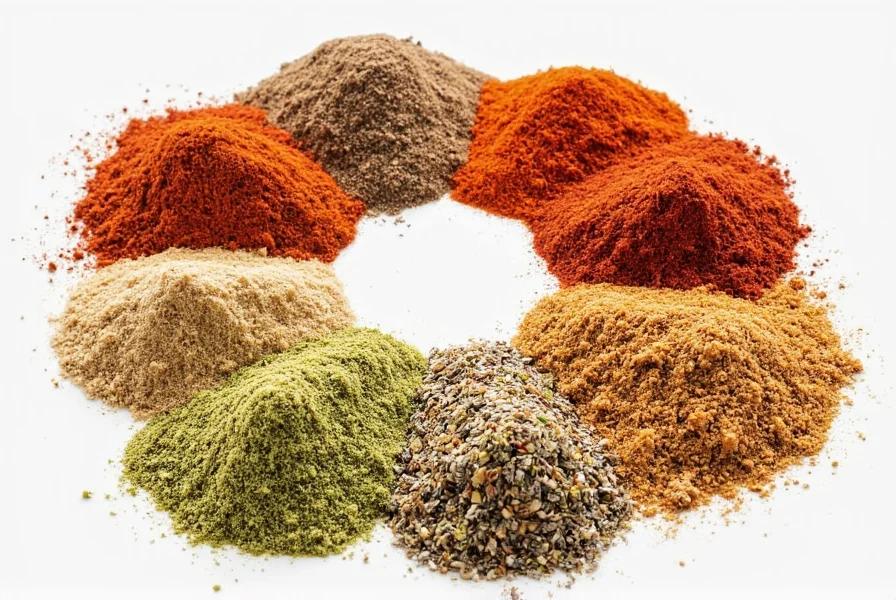
Pro Tips: Getting the Most Out of Your Spices
- Bloom your spices. Toast whole spices in oil or dry-heat to release essential oils and intensify flavor.
- Layer flavors. Add different types of seasonings at different stages — start with aromatics, build with mid-tier spices, and finish with fresh herbs or finishing salts.
- Don’t skip acid. Pair acidic ingredients like lemon juice or vinegar with your seasonings to enhance flavor profiles.
- Test before serving. Taste and adjust seasoning at the end — don’t assume your blend has it covered!
- Try DIY blends. Make your own custom mixes tailored to your palate instead of relying on store-bought packets full of fillers.
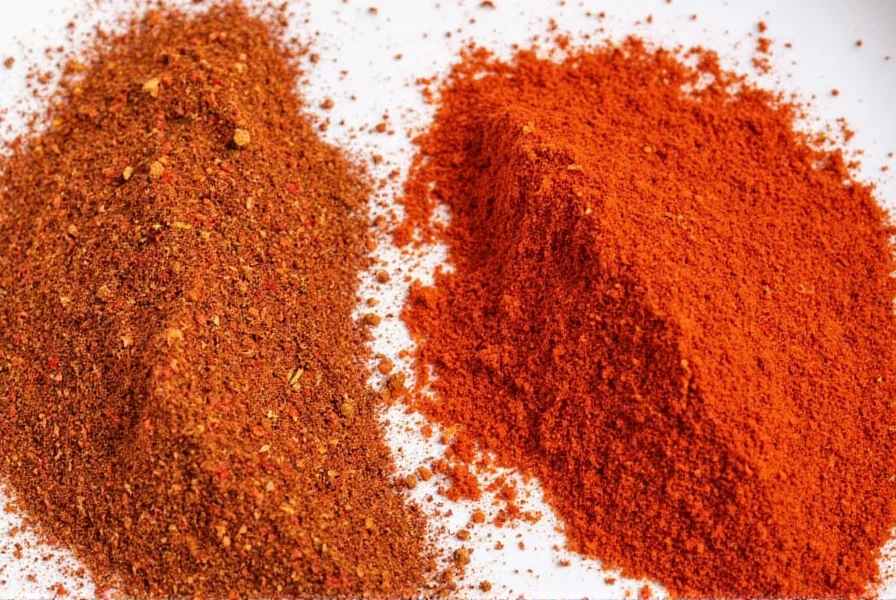
Frequently Asked Questions
What are the most versatile seasonings for everyday cooking?
Za'atar and sumac top the list for versatility. Za'atar brings a tangy, herbal note to pita, roasted vegetables, and salads, while sumac adds a bright, citrusy punch to grilled meats, dressings, and rice dishes without overwhelming heat.
How can I make my spice blends last longer?
Store whole spices in airtight glass containers away from heat and light. Ground spices lose potency faster, so buy whole and grind as needed. Label containers with purchase dates — whole spices last up to 4 years, ground ones 1-2 years.
Is there a vegan alternative to eggs that uses seasonings?
Yes! Himalayan black salt (kala namak) has a distinctive sulfurous, eggy flavor. It's perfect for tofu scrambles, vegan omelets made from chickpea flour, and avocado toast, making it a staple in plant-based cooking.
What's the difference between mace and nutmeg?
Mace is the thin, lacy membrane covering the nutmeg seed. It has a similar warm, sweet flavor but is more delicate and floral. Use mace in creamy sauces, baked goods, and custards where a subtle spice note is desired, while nutmeg is bolder and better for hearty dishes.
How do I avoid over-spicing a dish?
Layer seasonings gradually: start with aromatics (like onions and garlic), add mid-cook spices for depth, and finish with fresh herbs or finishing salts. Always taste and adjust at the end — it's easier to add more than to fix an over-seasoned dish.
Conclusion
Seasonings for what? Everything, really. With the right spice, you can transform everyday meals into memorable experiences. From za’atar-dusted veggies to Szechuan-peppercorn-laced stir-fries, there’s a whole world of flavor waiting in your pantry.
Remember, great cooking isn’t just about technique — it’s also about smart seasoning choices. So go ahead, open that spice drawer, dust off the old bottles, and maybe even add a few new ones to your collection. Your tastiest meals are just a sprinkle away.
Ready to upgrade your kitchen arsenal? Try one of our featured spice sets below or mix your own combo using our top picks. Happy cooking!

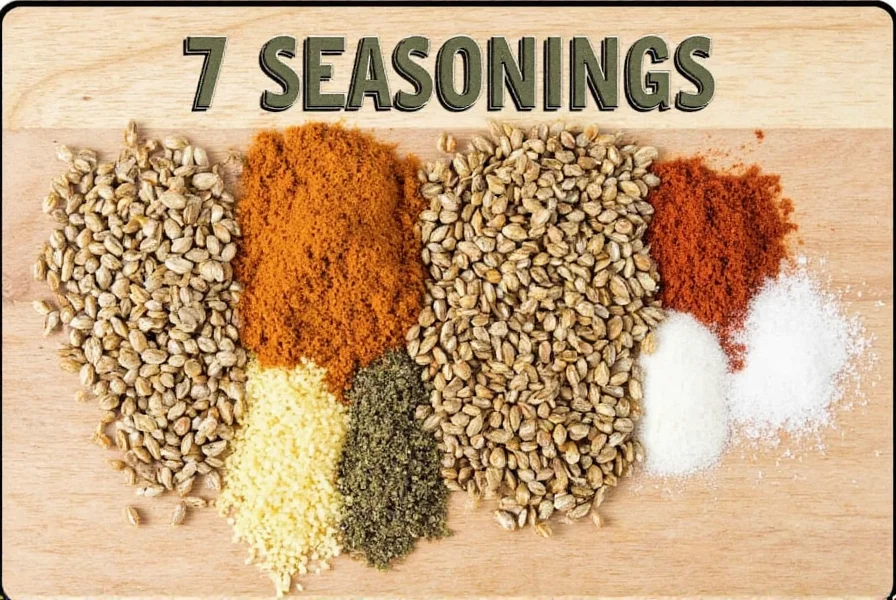









 浙公网安备
33010002000092号
浙公网安备
33010002000092号 浙B2-20120091-4
浙B2-20120091-4